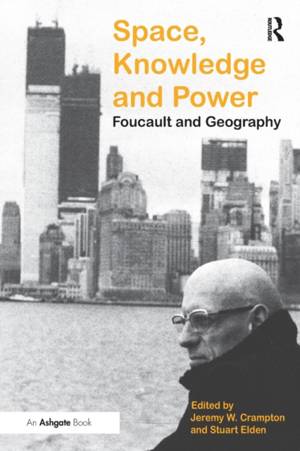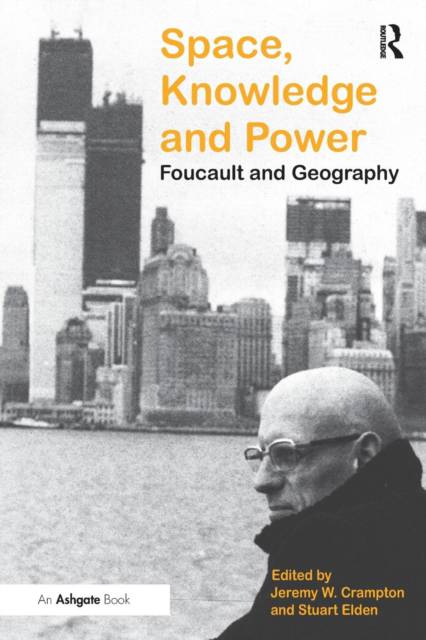
Je cadeautjes zeker op tijd in huis hebben voor de feestdagen? Kom langs in onze winkels en vind het perfecte geschenk!
- Afhalen na 1 uur in een winkel met voorraad
- Gratis thuislevering in België vanaf € 30
- Ruim aanbod met 7 miljoen producten
Je cadeautjes zeker op tijd in huis hebben voor de feestdagen? Kom langs in onze winkels en vind het perfecte geschenk!
- Afhalen na 1 uur in een winkel met voorraad
- Gratis thuislevering in België vanaf € 30
- Ruim aanbod met 7 miljoen producten
Zoeken
€ 85,45
+ 170 punten
Uitvoering
Omschrijving
Michel Foucault's work is rich with implications and insights concerning spatiality, and has inspired many geographers and social scientists to develop these ideas in their own research. This book, the first to engage Foucault's geographies in detail from a wide range of perspectives, is framed around his discussions with the French geography journal Hérodote in the mid 1970s. The opening third of the book comprises some of Foucault's previously untranslated work on questions of space, a range of responses from French and English language commentators, and a newly translated essay by Claude Raffestin, a leading Swiss geographer. The rest of the book presents specially commissioned essays which examine the remarkable reception of Foucault's work in English and French language geography; situate Foucault's project historically; and provide a series of developments of his work in the contemporary contexts of power, biopolitics, governmentality and war. Contributors include a number of key figures in social/spatial theory such as David Harvey, Chris Philo, Sara Mills, Nigel Thrift, John Agnew, Thomas Flynn and Matthew Hannah. Written in an open and engaging tone, the contributors discuss just what they find valuable - and frustrating - about Foucault's geographies. This is a book which will both surprise and challenge.
Specificaties
Betrokkenen
- Auteur(s):
- Uitgeverij:
Inhoud
- Aantal bladzijden:
- 390
- Taal:
- Engels
Eigenschappen
- Productcode (EAN):
- 9780754646556
- Verschijningsdatum:
- 1/02/2007
- Uitvoering:
- Paperback
- Formaat:
- Trade paperback (VS)
- Afmetingen:
- 155 mm x 231 mm
- Gewicht:
- 725 g

Alleen bij Standaard Boekhandel
+ 170 punten op je klantenkaart van Standaard Boekhandel
Beoordelingen
We publiceren alleen reviews die voldoen aan de voorwaarden voor reviews. Bekijk onze voorwaarden voor reviews.









